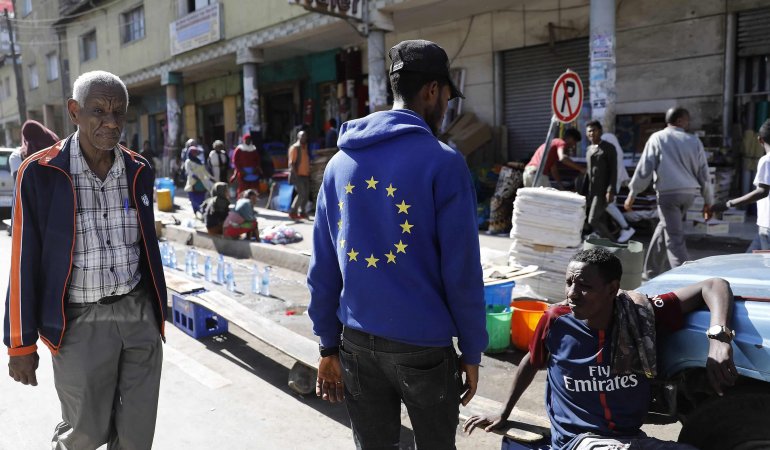News
Major Shift in EU-African Cooperation on the Horizon as African Continental Free Trade Area Sets to Open in July

With the recent EU leadership reshuffle, a significant change in Europe’s approach to its southern neighbour, Africa, is expected to occur in the nearest future. The first three months of the new administration abounded in promising developments for the EU-African partnership, as the new chiefs of the European Commission and the European Council – Ursula von der Leyen and Charles Michel, respectively – participated in four high-level meetings with African leaders by the end of February.
Having assumed office on 1 December last year, after only a few days on the job, von der Leyen rapidly moved from talk to action with regards to the plan of making her Commission a geopolitical one. On 7 and 8 December, she was in Addis Ababa, Ethiopia, where she visited the African Union’s (AU) headquarters and met with her local counterparts. During her first official visit abroad, von der Leyen stressed the need to elevate the EU-African relations to another level by significantly widening the scope of cooperation.
What followed the Commission President’s early diplomatic effort in Africa was Michel’s subsequent presence at two meetings with the continent’s leaders in different formats. Apart from his participation in the January G5 Sahel meeting in Pau, France, on 9 and 10 February he also visited the Ethiopian capital, where he met with African heads of state on the margins of the 33rd AU summit. In his address, Michel announced “a fresh start” in the EU’s relationship with Africa, identifying climate change and digital revolution as the major common challenges to be faced in the future. According to his vision of a reinvigorated partnership, the EU-Africa cooperation should go beyond trade, investment and development by expanding to additional areas, such as human and economic capital, employment and infrastructure. This declaration comes as good news to the continent, notably in the context of the upcoming opening of the African Continental Free Trade Area (AfCFTA), scheduled for July.
Some two weeks later, the Ethiopian capital also hosted the 10th Commission-to-Commission meeting between the EU and AU. On this occasion, it was again von der Leyen who, accompanied by 20 Commissioners (record participation on the EU’s side), followed up on Michel’s and her own earlier efforts. On this occasion, the Commission President outlined more in detail the direction the EU-African cooperation should follow. In this context, she named such areas as sustainable growth and jobs, green transition, digital transformation, peace, security and good governance, mobility and migration. As expected, the main focus of the gathering was, again, put on AfCFTA. Von der Leyen reiterated the EU’s readiness to assist the African states in their efforts to make it a fully operational regime, reminding Europe is the largest investor in Africa and the continent’s largest trade partner. Indeed, the Commissions agreed to cooperate closely not only on the final shape of the deal itself but also in all the other policy areas related to trade, such as transport, infrastructure, digitalization, agriculture and investments.
The 10-year time period envisaged for the AfCFTA’s implementation phase constitutes a window of opportunity for non-African partners interested in getting involved on the ground. As for its enhanced role in Africa, the EU is expected to come up with a considerable financial offer as far as infrastructural development is concerned. Although this will most probably come at a cost of reducing the size of its humanitarian aid envelope, the African countries are aware that with a properly functioning free trade area in place the chances are they will be becoming more and more self-reliant in this respect. The EU, for its part, sees it as both a long-term investment in deepening its business cooperation with Africa, as well as a great opportunity to advance its global agenda by promoting multilateralism, free trade and sustainable development.
The EU’s next – and probably the most crucial – step in redesigning its approach towards Africa will be the publication of its comprehensive Africa Strategy, due in March (von der Leyen vowed to deliver it in her first 100 days in office). Once presented, the document will most likely become the main point of reference for the participants of the EU-AU Ministerial meeting in Kigali, Rwanda, in May and the subsequent EU-AU Summit scheduled for October with Brussels as the host city.







